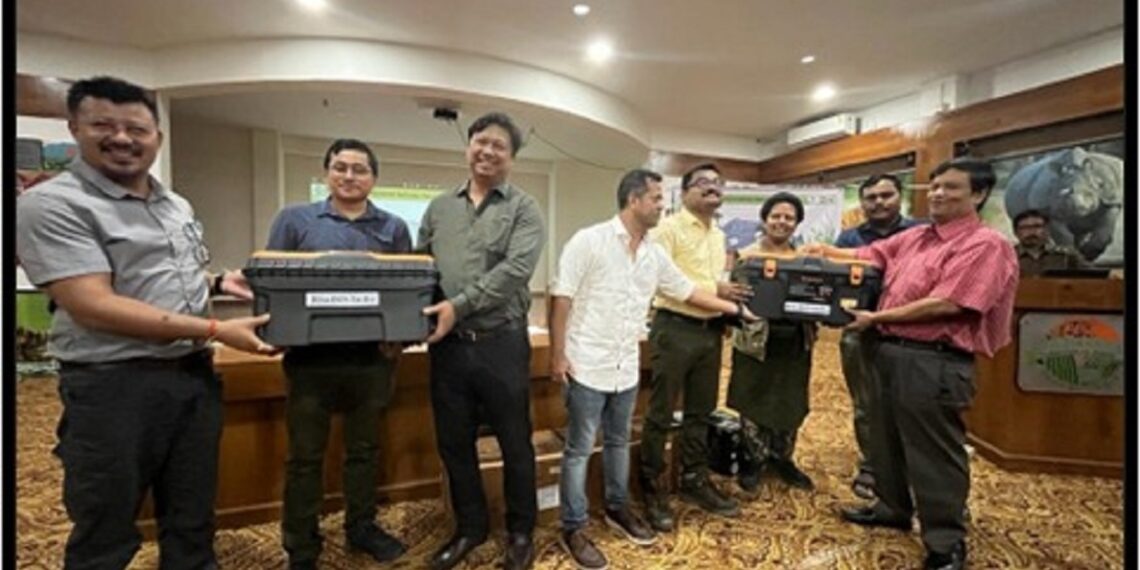GUWAHATI: In a determined effort to combat rhino poaching and improve investigation capabilities, Kaziranga National Park and Tiger Reserve (KNP & TR) conducted an intensive training programme on RhoDIS India (Rhino DNA Indexing System) at the Convention Centre in Kohora, on Tuesday.
A total of around 40 forest staff members from the Eastern Assam Wildlife Division, as well as over 10 officers, participated in the initiative. The training, which included comprehensive modules on rhino crime investigation, was conducted by Amit Sharma, National Lead for Rhino Conservation at WWF-India, and Dr Khanin Changmai, Associate Coordinator at Animal Health from Brahmaputra Landscape, WWF-India.
Participants were educated on the intricacies of the RhoDIS India programme, strictly adhering to the Standard Operating Procedure sanctioned by the Ministry of Environment, Forest and Climate Change (MoEFCC). Vital components of the training covered the deployment of field sampling kits for the collection of biological evidence, ensuring a maintained chain of custody, and the adept use of the crime investigation kit.
A senior forest official, while expressing optimism on the outcomes of the training, remarked, “With the new crime investigation kits in place – which notably includes tools such as metal detectors – and enhanced skills of the forest staff, we anticipate a more systematic approach to rhino crime investigations. This is a significant step forward in our relentless fight against poaching.”
The Kaziranga NP & TR also received two sets of crime investigation kits under the RhoDIS India guidelines.
Launched in 2016, RhoDIS India is a collaborative initiative helmed by MoEFCC, Wildlife Institute of India (WII), WWF India, and the rhino-bearing states of India.
India’s RhoDIS system finds its origins in a similar programme curated by the University of Pretoria in South Africa. Introduced in 2014 to Indian soil, WWF India and the Assam Forest Department spearheaded a series of workshops in Assam by collaborating with South African experts.
With the RhoDIS India laboratory stationed at the Wildlife Institute of India, approximately 20 rhino crime cases from across the nation have undergone thorough analysis to date. The resultant reports have played a pivotal role in the legal proceedings of these cases. A noteworthy addition to the programme has been the introduction of a tamper-proof sampling kit, exclusive to rhino crime cases.















